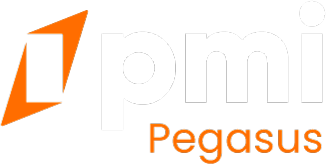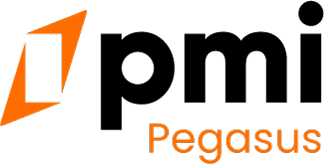Conflicts in a homeowners' association can begin with something as simple as a noise complaint or a parking issue. The real test is how they are resolved. In a city as dynamic as Dallas, where neighborhoods reflect pride and individuality, the HOA grievance committee plays a vital role in maintaining peace, structure, and mutual respect.
At PMI Pegasus, we’ve seen how transparency and consistency transform community dynamics. A well-organized grievance committee resolves disputes and protects neighborhood trust. You can learn more about digital security and smarter systems that help HOAs keep their operations secure and efficient.
Key Takeaways
- Effective grievance committees create fairness and stability across HOA communities.
- Active listening prevents miscommunication and emotional escalation.
- Consistent rule enforcement strengthens homeowner trust.
- Regular training and documentation improve committee performance.
- Transparent communication keeps Dallas neighborhoods united and informed.
Why Grievance Committees Matter in Dallas Communities
Dallas neighborhoods are diverse, vibrant, and full of personality. With such variety comes a greater need for consistency in how disputes are handled. The HOA grievance committee is often the backbone of community fairness. It ensures residents are treated equally, no matter the situation.
Common disputes often stem from maintenance delays, parking conflicts, or unclear rules. Without structured handling, these small problems can quickly grow. A well-functioning grievance committee manages these moments calmly, fairly, and in accordance with the association’s bylaws.
Strong committees help homeowners feel heard while protecting the values that define Dallas’s neighborhood lifestyle—respect, cooperation, and pride in shared spaces.
Listening: The First Step to Peace
The most powerful way to defuse tension is to listen. Homeowners who feel understood are less defensive and more open to resolution. Grievance committee members should focus first on understanding the story behind the concern.
Start conversations by asking open-ended questions:
- “Can you tell us more about what happened?”
- “What would you consider a fair outcome?”
- “How has this issue affected your experience in the community?”
Document every detail and repeat key points to confirm accuracy. This approach ensures both parties know they’re being treated fairly. It’s a simple but vital step toward restoring calm and trust.
Consistent Enforcement Builds Credibility
Consistency defines credibility in HOA leadership. Grievance committees should always base their decisions on governing documents rather than personal opinions.
When evaluating a complaint, check these factors:
- Does the situation directly violate HOA rules?
- Have similar issues been handled the same way in the past?
- Are deadlines and procedures followed accurately?
Fairness depends on consistency. When homeowners see that the same standards apply to everyone, they gain confidence in the committee’s integrity. When in doubt, consulting the property management team ensures that decisions align with both policy and law.
The Role of Clear and Proactive Communication
Strong communication prevents most disputes before they start. Keeping homeowners informed helps reduce confusion and frustration.
Address Issues Early
When a potential rule violation or complaint surfaces, reach out immediately. A timely message can prevent frustration and help homeowners correct problems quickly.
Keep Language Simple
Avoid technical or overly formal writing. Straightforward communication makes policies easier to understand and follow.
Explain the Next Step
Let residents know what comes next, like hearings, timelines, or resolutions. When the process is clear, it creates confidence and cooperation.
Creating a Transparent Grievance Process
Transparency ensures that homeowners trust the system, even when outcomes are not in their favor. Committees can achieve this through a structured and open process.
A fair and clear framework often includes:
- Filing the complaint: Give homeowners an easy way to submit concerns.
- Reviewing the issue: Schedule meetings to review the situation promptly.
- Listening to all sides: Allow equal time for both parties to share perspectives.
- Documenting outcomes: Record final decisions and communicate them clearly.
A transparent process resolves current disputes and prevents future tension.
Handling Heated Situations Professionally
Disputes can become emotional, and how committee members respond determines the tone of the resolution. Staying calm and measured shows professionalism and prevents escalation.
To manage tense moments effectively:
- Lower your voice and speak slowly.
- Pause discussions if emotions run high.
- Involve a neutral mediator when necessary.
In Dallas communities where neighbors often interact regularly, maintaining civility and composure keeps relationships strong long after the disagreement ends.
Building Strength Through Training and Support
Training is the foundation of a capable grievance committee. Members need education in communication, conflict management, and HOA governance.
Workshops and refresher courses help members stay informed about legal updates and best practices. Reviewing past cases together provides valuable insights into what works and what doesn’t.
Professional management guidance also strengthens committee effectiveness. Explore compliance inspections to ensure your community’s procedures follow current standards and remain transparent to residents.
Documentation and Accountability
Proper documentation shows that your HOA handles all matters professionally. Every complaint, hearing, and resolution should be logged for reference.
Documentation builds accountability and offers protection for both the committee and homeowners. It prevents confusion, supports consistent decision-making, and demonstrates that fairness is always a priority.
Regularly reviewing past cases can reveal trends that help the committee prevent recurring issues. It also reinforces the importance of maintaining professional records for legal and organizational purposes.
Promoting Community Engagement Beyond Disputes
A grievance committee’s purpose goes beyond resolving issues. It can also nurture positive engagement that helps prevent future problems.
Host open meetings or Q&A sessions to give homeowners a space to share ideas. Share updates on improvements or policy reminders through newsletters or community apps.
Preventive maintenance also plays a big role in minimizing conflicts. Conduct regular maintenance inspections to ensure shared spaces remain in good condition and potential concerns are addressed before they turn into disputes.
Leading Dallas HOAs Toward Cooperation and Growth
In a vibrant city like Dallas, thriving communities depend on communication, fairness, and accountability. HOA grievance committees that uphold these values build stronger relationships and reduce unnecessary conflict.
At PMI Pegasus, we help HOAs and committees develop clear structures, improve communication, and strengthen leadership strategies. Our experience guiding Dallas communities ensures that your neighborhood stays organized, cooperative, and harmonious.
If you’re ready to enhance your HOA’s effectiveness, visit our board member resource page to see how PMI Pegasus can help your grievance committee create a culture of fairness and respect.
FAQs
What does an HOA grievance committee do?
It reviews homeowner disputes, ensures rules are applied fairly, and helps maintain peace by following the association’s governing documents.
How can committees manage emotional homeowners?
Stay patient, listen carefully, and maintain a calm tone. If discussions become heated, take a short break or bring in a neutral third party to keep the conversation constructive.
Why is documentation so important in HOA disputes?
Accurate records protect both the HOA and homeowners. They serve as proof of fair handling and can be referenced during future disputes or audits.
How often should committee members receive training?
Ideally, once a year or when new members join. Training ensures a consistent understanding of laws, communication techniques, and fair procedures.
What are the best ways to prevent recurring conflicts?
Encourage open communication, hold community meetings, and provide regular updates. Transparency and consistency are the keys to preventing repetitive disputes.


